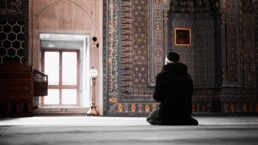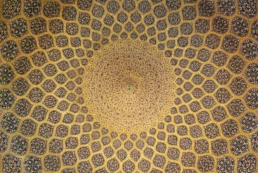Claiming ‘Orthodoxy’
A few colleagues who have graduated from British religious seminaries (Dar-ul-ulum), as well as Madinah, Umm Al Qura and Al Azhar universities recently intimated their deep unease with the existing scattered approach to claiming Islamic ‘orthodoxy’. A vague term used to establish legitimacy and usually built on very shaky grounds, the term has replaced what used to be the notion of a good and solid argument, and much of this is down to the parochial mind set and sectarianism ‘leaders’ implicitly or explicitly endorse. One Dar-ul-ulum graduate mentioned that he is derogatorily called open-minded by his colleagues, as if there is any universe in which such a thing might be bad. Unfortunately, the inability to systematically reason and behave appropriately in particular situations is neither new to current times nor will it suddenly disappear, the Hanbali jurist and hadith master Ibn al-Jawzi lamented in his own time saying, ‘I saw a group of those who ascribe themselves to knowledge acting like the laity.’
Thoughts for the Contemporary Mufti
There are personalities who issue fatwas on politicised matters of faith seeking to position themselves as moderate to non-Muslim liberals, or offer everything as technicalities to present a veneer of intellectualism. Desperate to demonstrate their usefulness, these muftis engage in a one-way competition attempting to outshine others, either by supposing hypothetical problems or framing problems as having a significant impact on society when in reality they only affect a handful of people.
Those who purify are successful
Raising rank through knowledge
Distinguishing Elders from the elderly
One topic that tends to provoke a one-dimensional response is the role of elderly members of Muslim communities in religious institutions. Very rarely do we find in the shari’ah an either/or approach, however, with a religious community driven by its laity, most issues are propped up as either/or topics, seldom is there room for a meaningful discussion or a nuanced approach. Behind closed doors many people show an ability to discuss the issue in a nuanced and mature fashion but in public they adopt a pretentious approach. Any point that effectively attempts to temper the role or influence of the elderly is quickly greeted with a self-righteous performance, “but Allah said we must respect the elderly!” as if suggesting an intelligent way in which to deal uprightly with the needs and whims of the older generation simply implies disrespect or downright contempt. Much of this is probably down to ethno-cultural norms. The esteem afforded to the elderly by the shari’ah is either misunderstood or misapplied as some form of near-deification. In addition, a lack of explicit guidance in how the shari’ah would have us deal with the elderly in a communal setting has meant that successive generations are impeded in religious and social progress.
A Three Point Plan and Four-Step Solution
A true believer is fundamentally one who engenders Abrahamic monotheism and aspires to the highest form of moral conduct reflected in the shari’ah, and given the complexities life tends to throw up believers occasionally find themselves seeking an understanding of the divine will to various issues. As times change and contexts will perpetually vary, this necessitates that there shall always be a need for judicious responses to queries of a religious nature, as well as those who have the learning to provide them. Regrettably, in some circles these solutions have become merely a matter of intellectual experimentation, and those who offer an inventive reason to divert from praiseworthy norms are celebrated as the truest of sages, heroes that shall defend the aspirations of the people. While orthodox scholars regard finding solutions stimulating challenges, they also remain cognisant of the fact that the aspirations of the people must be tempered by the idea of godliness. As God put it, “And if you obey most of those upon the earth, they will mislead you from the way of God.” (Q 6:116)
Social media, faith, and the Ruwaybidhah
Social media has proved to be a burgeoning phenomenon, the owners of Facebook are billionaires and its servers probably store more data on humanity than anywhere else. But the new virtual assembly social media facilitates does not produce a significant jama’ah (community) but a superficial and deceptive sense of community. Many assert it remains a way of staying ‘connected’ with other Muslims but it actually characterises disengagement between believers.




